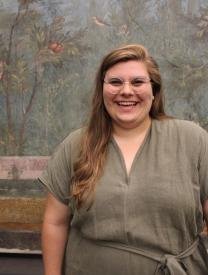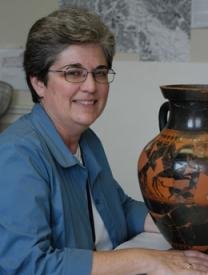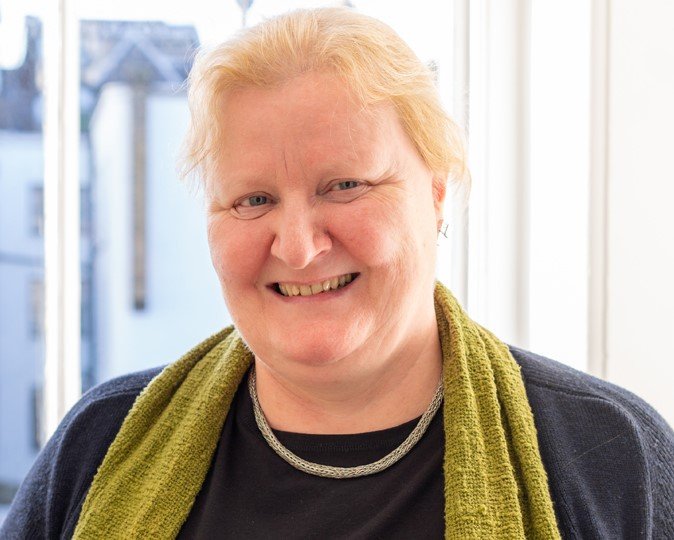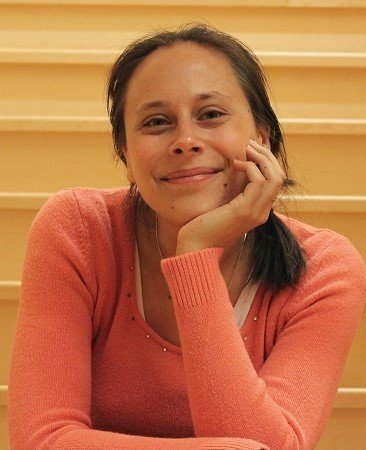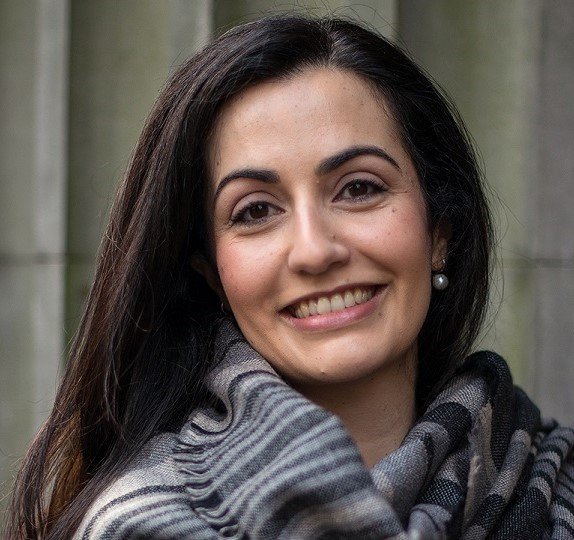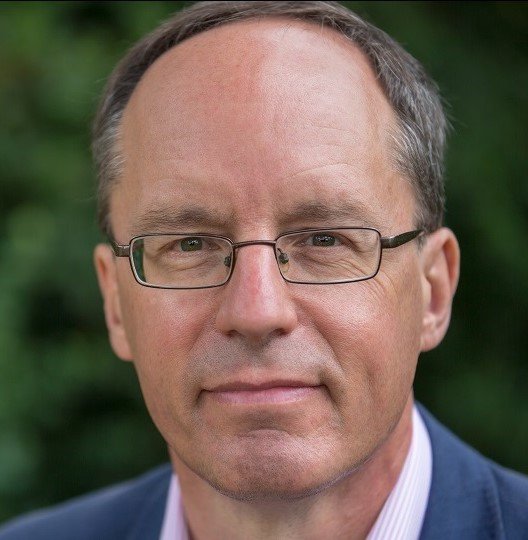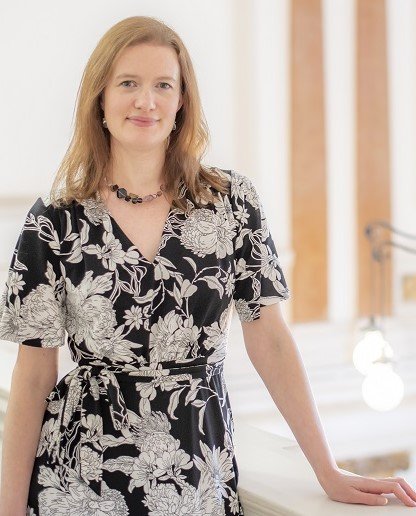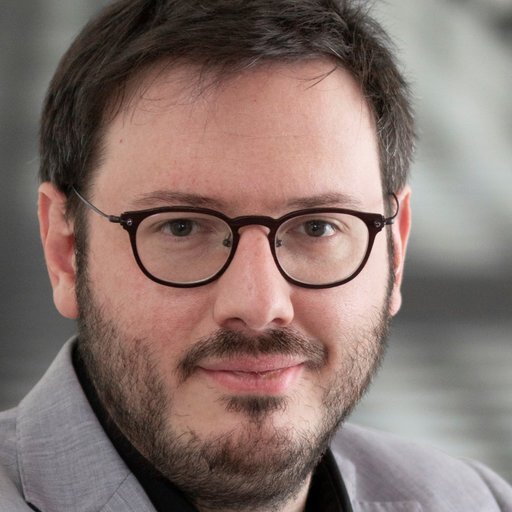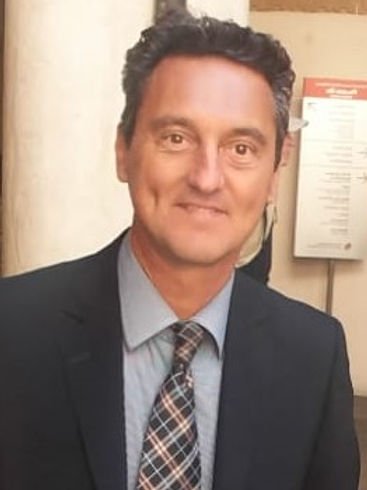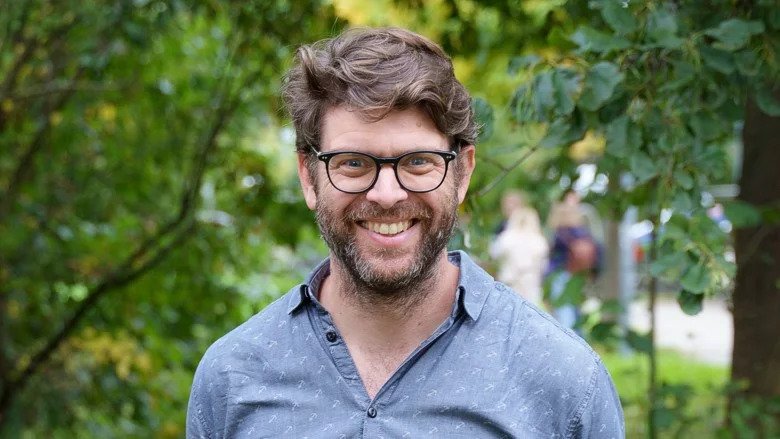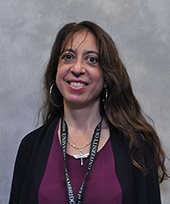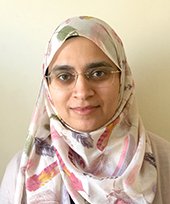- About Journal
- Editorial Board
- Articles
- Submit Manuscript
- Article Processing Charges
- Benefits for Authors
- Membership Program
- Instructions for Authors
- Editor Guidelines
- Reviewer Guidelines
- Peer Review Guidelines
- Special Issues Guidelines
- publication ethics
- Collaborations
- Reprints & permissions
- FAQ
- Contact Us
MSD Journal of Musicological Society and Research Studies in Music Education
Coming Soon...

Editor In Chiefs
Associate Editors
Editorial Board
Brigitte A. Keslinke
PhD Candidate
Brigitte A. Keslinke PhD Candidate
- Email:brke@sas.upenn.edu
- Department:Art and Archaeology
- University:Mediterranean World Graduate Group, University of Pennsylvania
- Country:USA
Biography:
Brigitte (she/her) received a B.A. in Archaeology and History of Art and Architecture from Boston University in 2017 and an M.A. in Classical Art and Archaeology from the University of Colorado Boulder in 2019. Currently, she works at the sites of Gordion and K?n?k Höyük in Turkey, but she has also excavated in the sanctuary at Athienou-Malloura on Cyprus. Her research centers on ceramics, feasting, and religion, and she is particularly interested in the role that food played in identity and community construction in the Hellenistic and Roman Mediterranean. In her dissertation, she uses food and feasting to clarify the transmission of ritual practice, especially as it pertains to the cult of Mithras, and to better understand what role food-related activities played in situating this new cult within existing religious landscapes across the Roman Empire. According to our ancient sources, Mithras and his mysteries originated in the east. Although early scholars of the cult took these authors at their word, most research produced in the last half century has argued instead that Mithras was a Roman invention and should therefore be viewed through a Roman lens. Yet the cult and its participants remain, in many ways, on the margins of Roman religion. The Making of a Meal seeks to recontextualize this cult through a comparative study of its most fundamental ritual—the communal meal—and investigates the extent to which the cult was shaped by the communities into which it was introduced. In doing so, my project presents an opportunity to reconsider the role of food in Roman religion and the ways in which it allowed people to make meaning in sacred spaces vis-à-vis their own consumption practices and preferences. The result will be the first comprehensive study of sacrifice and feasting in the cult of Mithras, one that engages and contributes to broader discussions on community construction and ritual transmission.
Research Interests:
Art and Archaeology
Ann Blair Brownlee
Associate Curator
Ann Blair Brownlee Associate Curator
- Email:abrownle@upenn.edu
- Department:Professor of the History of Art at Penn
- University: University of Pennsylvania
- Country:USA
Biography:
Ann Brownlee's research interests focus on Greek vase-painting, particularly Archaic Corinthian and Attic black-figure. She is preparing a study of the Archaic Corinthian pottery from the so-called Potters' Quarter at the site of Ancient Corinth. In 2016, she was a Kress Publication Fellow at the American School of Classical Studies and spent the spring semester in Athens and Corinth. With AAMW alumna Valentina Follo, she is currently conducting a study of the Museum’s collection of Attic black-figure pottery from excavations in the 1890s in the Etruscan city of Orvieto. She is also interested in 19th century collectors of antiquities, especially in Philadelphia, and in the history of museums, in particular the University of Pennsylvania Museum and its building; she was co-author of its monumental Historic Structure Report. Ann Brownlee is also the co-director of the Museum’s Corpus Vasorum Antiquorum project and is editing and preparing for publication two volumes in the series.
Research Interests:
Greek vase-painting, particularly Archaic Corinthian and Attic black-figure.
Dr Mary Stakelum
Area Leader in Music Education Doctoral Supervisor
Dr Mary Stakelum Area Leader in Music Education Doctoral Supervisor
- Email:Mary.Stakelum@rcm.ac.uk
- Department:Music Education
- University:Royal College of Music
- Country:UK
Biography:
Mary Stakelum is Area Leader for Music Education at the Royal College of Music. She is responsible for the Master of Education (MEd), developing and coordinating the teaching of modules in music education at undergraduate level, supervising doctoral students, and leading on music education as a research area. In her research, there are three main strands, the first of which is her focus on exploring children’s musical worlds. She has published on musicality and its development; imagination and creativity in the young musician; and new directions in teaching and learning in this field. A second strand spans historical perspectives on musical knowledge and curriculum development. Here her research covers music education broadly conceived to include developments in Ireland’s long nineteenth century, and the emergence of music as an area of study within a formal system of education. Ethnographies of practice forms a third strand. This began with her doctoral research into the relationship between formative experiences and practice which found that music education in the formal institutional setting can act as a powerful way of introducing a sense of place and tradition.
She is now applying this to inclusive musical practices, and to characterising pedagogical knowledge beyond an implementation discourse rooted in western art practices. Mary has a collaborative approach to professional development and a longstanding commitment to mentoring early career researchers. She is widely in demand as a music education consultant and acts as critical friend for MusiQue. She served as board member of the European Association for Music in Schools from 2010 to 2017 (www.eas-music.org), leading on its Doctoral Student Forum from 2011 to 2018. A Trustee of the Society for Education and Music Psychology Research (www.sempre.org.uk), she represents them on the steering group of the network Equality, Diversity and Inclusion in Music Studies (EDIMS) leading on its working group Pathways to Music. She is editor in chief of Music Education Research published by Taylor & Francis, and conference director of the biennial International Conference on Research in Music Education (RiME).
Research Interests:
Teaching of modules in music education at undergraduate level, supervising doctoral students, and leading on music education as a research area. In her research, there are three main strands, the first of which is her focus on exploring children’s musical worlds
Dr Jeremy Leong
Independent Scholar; former Assistant Professor
Dr Jeremy Leong Independent Scholar; former Assistant Professor
- Email:jesplanade@yahoo.com
- Department:Institute of Music
- University:UCSI University
- Country:Malaysia
Biography:
Jeremy Leong received a Ph.D. in historical musicology from the University of Wisconsin-Madison and a Graduate Certificate in Southeast Asian Studies with emphases on ethnomusicology, history, and cultural studies. He has broad interdisciplinary research interests that include “German philosophical and musical influences in Chinese music education,” “Jewish musical diaspora in China,” “Music and Orientalism,” and the “COVID-19 pandemic and music in Southeast Asia,” just to name a few. He has published with Oxford University Press, Ashgate, Routledge, Notes, and others. He served as co-editor for a special issue on music and the COVID-19 pandemic for the Journal of Music, Health, and Wellbeing. He was also invited as a peer reviewer for Syracuse University Press, a guest speaker at the University of Gothenburg (Sweden), and a panelist at the Universiti Kebangsaan Malaysia (Malaysia). He was the keynote speaker for the conference “Confounding Expectations 2022: Cultural Assimilation in Music and its Authenticity” organized by the University of Calgary Graduate Music Society. In addition, he has also presented his research at conferences in North America, China, Thailand, and Europe; and was awarded a prize for his research paper on the music of Austro-German Jews in China at the International Council for Traditional Music (ICTM) Study Group for Musics of East Asia international conference held at the Shanghai Conservatory of Music. ICTM is an organization in formal consultative relations with UNESCO. He has a strong passion for teaching and helping students to succeed; and has taught music at the University of Western Ontario, the University of Wisconsin-Madison, and the University at Buffalo (SUNY) in partnership with SIM Global Education in Singapore. He was also the former Head of Postgraduate Studies and Assistant Professor of Musicology at UCSI University’s Institute of Music in Malaysia.
Selected Publications:
Leong, Jeremy. “An Unsung Austrian Doyen: Erwin Felber and the Transference of Cultural and Musical Knowledge in Wartime Shanghai.” In Cultural Translation and Knowledge Transfer on Alternative Routes of Escape from Nazi Terror: Mediations through Migration, eds. Susanne Korbel and Philipp Strobl, 217-233. Studies for the International Society for Cultural History. New York: Routledge, 2021
____________. “Musical Irony and Identity Politics: Austro-German Jewish Refugees in Republican China.” In This is the Sound of Irony, ed. Katherine L. Turner, 59-72. Popular and Folk Music Series. Farnham, Surrey: Ashgate Publishing Limited, 2015.
____________. Review of Listening to China: Sound and the Sino-Western Encounter, 1770-1839 (Chicago: University of Chicago Press, 2020), by Thomas Irvine. Notes: The Quarterly Journal of the Music Library Association (September 2022): 58-61.
_____________. “Surviving Two Crises: Musicalizing Solidarity during the COVID-19 Pandemic in Malaysia.” Journal of Music, Health, and Wellbeing. Special issue entitled “Musicking through COVID-19: Challenges, Adaptations, and New Practices” (Autumn, 2021): 1-18. (Open Access: https://www.musichealthandwellbeing.co.uk/musickingthroughcovid19)
____________. “Felber, Erwin.” Grove Music Online. Oxford: Oxford University Press, 2019.
____________. “Mozart’s Don Giovanni.” A-R Online Music Anthology: Textbook, 1-10. Middleton: A-R Editions, 2017.
____________. Preface to Ouverture zu einer Opera Buffa, Op. 14, by Wilhelm Grosz. Munich: Musikproduktion Höflich, 2015.
____________. Preface to Contredanses für Orchester, by Luigi Cherubini. Munich: Musikproduktion Höflich, 2013.
____________. Preface to Concert Ouverture (1815), by Luigi Cherubini. Munich: Musikproduktion Höflich, 2012.
____________. Preface to Quartett A-Moll für zwei Violinen, Viola und Violoncello Op. 62, by Robert Fuchs. Munich: Musikproduktion Höflich, 2012.
____________. Preface to Konzert A-Dur für Violine und Orchester (1804), by Louis Spohr. Munich: Musikproduktion Höflich, 2011.
____________. Review of Claiming Diaspora: Music, Transnationalism, and Cultural Politics in Asian/Chinese America (Oxford: Oxford University Press, 2010), by Su Zheng. Notes: The Quarterly Journal of the Music Library Association (March 2011): 522-525.
Research Interests:
Musicology/Ethnomusicology/Cultural Studies
Dr Anna Detari
Lecturer in Performance Science
Dr Anna Detari Lecturer in Performance Science
- Email:anna.detari@rcm.ac.uk
- Department:Performance Science
- University: Royal College of Music
- Country:UK
Biography:
Anna Détári is a Lecturer in Performance Science within the Centre for Performance Science at the Royal College of Music. Anna’s main research interest is performing artists’ health and well-being. Informed by her work as both a performer and a researcher, her goal is to translate the latest scientific findings into effective practices to positively impact musicians’ lives in a meaningful way.
Anna holds her Bachelor of Music and Master of Music degrees in flute performance which she completed at the Franz Liszt Academy of Music and the University of Pécs in Hungary. Her interest in musicians’ health inspired her to complete a Master of Science degree in performance science at the Royal College of Music, followed by a doctoral degree at the University of York. Anna’s PhD research examined Musician’s Focal Dystonia - a task-specific neurological movement disorder - from a holistic perspective, considering psychological, psychosocial, and behavioural risk factors, to enhance existing treatments and establish preventative strategies.
As a member of the CPS, she continues her research into performers’ physical and mental health, focusing on motor movement acquisition, body mechanics, the psychosocial work environment of musicians, mental health, neurodiversity, and their implications for music performance and education.
Research Interests:
As a member of the CPS, she continues her research into performers’ physical and mental health, focusing on motor movement acquisition, body mechanics, the psychosocial work environment of musicians, mental health, neurodiversity, and their implications for music performance and education.
Dr Christina Guillaumier
Research Fellow Doctoral Supervisor Reader in Music & Cultural Practice
Dr Christina Guillaumier Research Fellow Doctoral Supervisor Reader in Music & Cultural Practice
- Email:christina.guillaumier@rcm.ac.uk
- Department:Reader in Music & Cultural Practice
- University:Royal College of Music
- Country:UK
Biography:
Dr Christina Guillaumier is a music historian and pianist based at the Royal College of Music (London) where she is Reader and Research Fellow in Music & Cultural Practice. Dr Guillaumier is a highly sought after writer, teacher and broadcaster on music, the arts and education. She writes and publishes in multiple languages. In addition to visiting appointments at international institutions, Christina is co-convenor of the Slavonic and East European Music Study Group. Dr Guillaumier is a Fellow of the Royal Society of Arts (FRSA) and a Senior Fellow of the Higher Education Academy (SFHEA). She is also a peer reviewer for several academic journals and publishing houses. Dr Guillaumier is an editor for Baerenreiter publishing house and her new critical biography of Prokofiev will be released by Reaktion Press in Autumn 2024.
Dr Guillaumier is the recipient of several research awards from the AHRC, the Higher Education Funding Council of England, the European Union, Erasmus, the American Musicological Society and the Russian Federation. She has held research posts at Princeton University and the Paul Sacher Foundation in Basel. Her work and research spans two distinct (although not unconnected) areas: (1) cultural practice and music history (2) conservatoire training and digital pedagogy in the arts sector. Her research and that of her students includes Slavic and East European music and opera; Russian, French and Italian piano music; genetic criticism and archival research; music and text; artistic research; creative learning and music education, in particular digital learning and the training of conservatoire musicians.
Dr Guillaumier welcomes inquiries from prospective students in any of the above areas. She also supervises students in other institutions, working within her research cluster.
Research Interests:
Dr Guillaumier is the recipient of several research awards from the AHRC, the Higher Education Funding Council of England, the European Union, Erasmus, the American Musicological Society and the Russian Federation. She has held research posts at Princeton University and the Paul Sacher Foundation in Basel. Her work and research spans two distinct (although not unconnected) areas: (1) cultural practice and music history (2) conservatoire training and digital pedagogy in the arts sector. Her research and that of her students includes Slavic and East European music and opera; Russian, French and Italian piano music; genetic criticism and archival research; music and text; artistic research; creative learning and music education, in particular digital learning and the training of conservatoire musicians.
Dr Guillaumier welcomes inquiries from prospective students in any of the above areas. She also supervises students in other institutions, working within her research cluster.
Professor Terence Charlston
Professor
Professor Terence Charlston Professor
- Email:historicalperformance@rcm.ac.uk
- Department:Chair of Historical Keyboard Instruments
- University:Royal College of Music
- Country:UK
Biography:
Terence Charlston is a specialist performer on early keyboard instruments, particularly harpsichord, clavichord and organ. His career encompasses many complementary roles including solo and chamber musician, choral and orchestral director, teacher and academic researcher. His fascination with surviving instruments and musical sources as witnesses of lost performances have made him a frequent performer at collections of early keyboard instruments all over the world. He was a member of the quartet London Baroque between 1995 and 2007 and the ensemble Florilegium between 2011 and 2019. In recent years, he has developed a particularly close affinity with the clavichord, recording music by Froberger, and 20th- and 21st-century music including his own compositions.
Terence is an important advocate of European keyboard music of the 17th and 18th centuries — a reflection of his artistic fascination with and critically acclaimed interpretations of this repertoire — and he has initiated many pioneering concerts and recording projects. These include editions and recordings of Carlo Ignazio Monza, Albertus Bryne, William Byrd’s My Ladye Nevell Booke, Matthew Locke’s complete organ and harpsichord music, and manuscripts and instruments belonging to the Royal College of Music and many other international collections. His current research interests focus on the analysis of keyboard music, particularly counterpoint, as an aural and performed experience.
A dedicated and much sought-after teacher, he has given a significant lead for the training of younger players and for the development of practice-led research at several prestigious British conservatoires and universities, including the Royal Academy of Music, London where he founded the Department of Historical Performance in 1995. He is Professor of Harpsichord and Chair of Historical Keyboard Instruments at the Royal College of Music, London. He was awarded the honorary Fellowship of the RCM in 2020.
Research Interests:
His career encompasses many complementary roles including solo and chamber musician, choral and orchestral director, teacher and academic researcher.
Professor Rosie Perkins
Professor
Professor Rosie Perkins Professor
- Email:rosie.perkins@rcm.ac.uk
- Department:Music and Health
- University:Royal College of Music
- Country:UK
Biography:
Rosie Perkins is Professor of Music, Health, and Social Science at the Royal College of Music. Based in the Centre for Performance Science, Rosie’s research investigates two broad areas within music and mental health: how music and the arts support societal wellbeing and how to enhance artists’ wellbeing and career development. Rosie has particular interest in how music can support parental wellbeing and co-chairs the Music and Parental Wellbeing Research Network. Rosie’s research has been supported by the Arts and Humanities Research Council (AHRC), Esmée Fairbairn Foundation, Arts Council England, British Academy, Dutch Research Council, and UK Research and Innovation (UKRI), and has featured in a wide range of international journals and press. Rosie is an honorary Senior Research Fellow in the Faculty of Medicine at Imperial College London and a Fellow of AdvanceHE (FHEA) and the Royal Society for Public Health (RSPH). In 2019, Rosie was elected an Honorary Member of the Royal College of Music. Rosie is a LAHP (London Arts & Humanities Partnership) doctoral student supervisor, currently supervising the work of Vivien Munday, Rebecca Herman, and Philippa Booth. She welcomes enquiries from potential doctoral students working in the broad area of the arts and mental health, particularly on topics related to parental wellbeing and to optimal learning and workplace cultures for musicians.
Research Interests:
Music, Health, and Social Science at the Royal College of Music. Based in the Centre for Performance Science, Rosie’s research investigates two broad areas within music and mental health: how music and the arts support societal wellbeing and how to enhance artists’ wellbeing and career development.
Thomas De Baets
Professor
Thomas De Baets Professor
- Email:thomas.debaets@luca-arts.be
- Department:Department of Music
- University:LUCA School of Arts | LUCA
- Country:Belgium
Biography:
Dr Thomas De Baets is Professor of Music Education at LUCA School of Arts (Campus Lemmens) in Leuven, Belgium. He is coordinator of the Bachelor and Master programme in Music Education and chair of the Music Education & Therapy Research Group. He is Vice President of the European Association for Music in Schools since 2015. He has lectured in different countries abroad. He is guest professor at the Royal Conservatoire (The Hague, the Netherlands) and Visiting Professor in the Arts at KU Leuven.
Prof. dr. Thomas De Baets is Professor of Music Education at LUCA School of Arts and KU Leuven, in Belgium. He is currently the Head of the Music department at LUCA School of Arts, campus Lemmens in Leuven. He holds a Master’s degree in Music Education (Lemmensinstituut, 2005), a degree of Advanced Studies in Music Education (Lemmensinstituut, 2008), and a PhD in Music Education (KU Leuven, 2012). His main research interests are professional development, innovation, and practitioner research in music education. He has been a board member of the European Association for Music in Schools (EAS) since 2009 and was EAS President between 2019 and 2021. He serves on the editorial boards of the peer-reviewed journals Cultuur+Educatie, Music Education Research and International Journal of Music Education.
Research Interests:
Music Education Music and Society Music Theory Musical Analysis Music Psychology
Michele Biasutti
Full Professor
Michele Biasutti Full Professor
- Email:michele.biasutti@unipd.it
- Department:Experimental Pedagogy
- University:Padova University
- Country:Italy
Biography:
Michele Biasutti PhD is Full Professor at Padova University. He was scientific director of research projects funded by the Inter-University Center of Excellence for Educational Research and Advanced Training, of a two-year university research project and has participated in several national research projects including the Prin (2002) on the evaluation of university teaching. At an international level he was scientific director and coordinator of research units of about ten projects including "ISSEMT", Curriculum planning in higher education for sustainable development in the framework of the Bologna process funded by UNESCO BRESCE and by REIC (Bosnia Herzegovina), and three-year European Tempus projects (EACEA) such as LMPSM (coordinated by the University of Iasi, Romania), RUCAS (coordinated by the University of Crete, Greece). He is Coordinator of the National Unit of the European project Education for sustainable development in Protected Areas, coordinated by the University of Athens (Greece) and of the ERASMUS + CCSAFS projects (coordinated by the University of Crete, Greece), EducaMigrant, coordinated by U?ak ?l Milli E?itim Müdürlü?ü (Turkey), Out of the Net coordinated by Zespol Szkol i Placowek Specjalnych ZSiPS, (Poland), Beyond The Limits: Developing Entrepreneurship via Creativity in Schools, (Sakarya Üniversity). Associate Editor of International Journal of Sustainability in Higher Education, Frontiers in Psychology, Sustainability and editorial board member of Musicae Scientiae (Sage); JOURNAL OF ARTS AND SOCIAL SCIENCES (JASS); Psych, Journal of Teacher Education for Sustainability. He is the author of over 200 publications including volumes and essays mainly with a single name or as first author in international journals with IMPACT FACTOR such as British Journal of Music Education (Cambridge University Press), Computers & Education (Elseiver), Creativity research journal (Taylor & Francis), Educational Technology & Society, Educational Technology Research and Development (Springer), Environmental Education Research (Taylor & Francis), Frontiers in Psychology, Giornale di Gerontologia, Giornale italiano di Psicologia (Il Mulino), Hearing Research (Elseiver), International Journal of Music Education (Sage), International Journal of Sustainability in Higher Education (Emerald), International Journal of Geriatric Psychiatry (Wiley), Journal of Education for Teaching (Taylor & Francis), Journal of Research in Music Education (Sage), Journal of Teacher Education for Sustainability (De Gruyter), Musicae Scientiae (Sage), Music Education Research (Taylor & Francis), Pedagogy, Culture & Society (Taylor & Francis), Psychology of Music (Sage), Research in Dance Education (Taylor & Francis); Rivista di Musicoterapia (Edizioni Minerva Medica); Rivista di Psicologia, Small Group Research (Sage), Technology, Pedagogy and Education (Taylor & Francis), Tecnologie Didattiche, The Arts in Psychotherapy (Elsevier), The International Journal of Aging and Human Development (Taylor & Francis), Thinking Skills and Creativity (Elseiver). Michele Biasutti is at the top nationally among the Professors of the scientific disciplinary sector (M-PED / 04 Experimental Pedagogy) for citations, H-index (Perish) and for number of publications in international journals with IMPACT FACTOR.
Research Interests:
Teaching and Learning E-Learning Learning Pedagogy and Education Pedagogy Professional Development Curriculum Development Teaching Experience Qualitative Analysis Academic Writing
Prof. Dr. Thade Buchborn
Professor
Prof. Dr. Thade Buchborn Professor
- Email:t.buchbornmh-freiburg.de
- Department: Music Education (Teaching)
- University:University of Music Freiburg
- Country:Germany
Biography:
Prof. Dr. Thade Buchborn, Professor, Music Education (Teaching) University of Music Freiburg, Germany. Member of the State Graduate Funding Committee, Member of the Doctoral Committee Member of the Study Commission IV Member of the Specialist Group 1 Member of the Structure and Development Commission Member of the Senate.
Current key topics in teaching and research
- Cultural diversity / heterogeneity / intercultural music education
- Songwriting and composing in music lessons
- Coherence in music teacher education
- Practices of cultural education in rural areas
- Hegemonies in practices of music education
- Reconstructive social research / documentary method
- Development-oriented teaching research / Design-Based Research
- Music education in a European perspective
- Extracurricular music education
Research Interests:
Music Education Music and Society
Pamela Burnard
Professor of Arts, Creativities and Educations
Pamela Burnard Professor of Arts, Creativities and Educations
- Email:pab61@cam.ac.uk
- Department:Arts, Creativities and Educations
- University:University of Cambridge | Cam · Faculty of Education
- Country:UK
Biography:
Pamela holds degrees in Music Performance, Music Education, Education and Philosophy. Her primary interest is creativities research for which she is internationally recognised. She is the author/co-author/editor of 15 books, 21 reports, and over 100 refereed journals and substantial book chapters. She is regularly invited to give keynote addresses and invited talks nationally and internationally. She is presently co-editor of the international journal Thinking Skills and Creativity; chair of the Arts and Creativities Research Group (A&CRG) University of Cambridge and co-convenor of the Creativities in Intercultural Arts Network (CIAN); and previously co-convenor of the BERA Creativities-in-Education SIG.
Her teaching responsibilities include developing creativity in learning and achievement in Higher Degree courses involving arts, culture and educational research training. She lectures on Undergraduate and Higher Degree courses developing creativity in education and music. She is the university link tutor for CPD courses in partnership with Cambridge Curiosity and Imagination (CCI) social enterprise involving artists. She is also PGCE tutor and Bye-Fellow of Homerton College where she runs a cultural programme of seminars for students, fellows and guests.
Dr Burnard holds degrees in Music Performance, Music Education, Education and Philosophy. She is convenor of the Commonwealth Creativities in Intercultural Arts Network, co-convenor of the BERA Creativity SIG, past co-editor of the British Journal of Music Education and the International Journal of Music Education, and she currently serves on numerous editorial boards.
Research Interests:
Arts and Humanities Cultural Studies Critical Theory Literature Studies Art and Science Textual Criticism Culture Cultural Analysis Creative Writing Comparative Cultural Studies
Ayesha Ahmed
Associate Teaching Professor
Ayesha Ahmed Associate Teaching Professor
- Email:aa483@cam.ac.uk
- Department:Developmental Psychology
- University:University of Cambridge
- Country:UK
Biography:
Ayesha works as an Associate Teaching Professor in the Psychology, Education and Learning Studies (PELS) group and is currently leading a research project on Assessing Students Participating in Collaborative Group Work. Ayesha has been working in the field of educational assessment since 1997, first at Cambridge Assessment, and then as a freelance consultant before joining the Faculty of Education in 2013. Her main areas of interest are in improving the quality of assessments and in the teaching and assessment of oracy skills.
Ayesha is an Executive Editor and Book Reviews Editor for Assessment in Education:principles, policy and practice. She is a Fellow of the Association for Educational Assessment: Europe, a member of the Research Advisory Group for Ofqual and Acting Chair of the Research Advisory Group for AQA.
Research Interests:
Psychology, Education and Learning Studies,
- Assessment of Collaborative Group Work
- Assessment of Oracy
- Validity of assessment
- Improving the quality of exam questions and mark schemes
Farah Ahmed
Senior Research Associate
Farah Ahmed Senior Research Associate
- Email:fa287@cam.ac.uk
- Department: Educational Research
- University:University of Cambridge
- Country:UK
Biography:
My research interests lie in the intersections between: dialogic education, philosophies of Islamic education, 'Southern' theory, i.e. critical and indigenous research methodologies and identity/personhood/character education. I am particularly interested in ontological, epistemological and theoretical frameworks and how these influence classroom practice. My research is driven by a commitment to community-led educational initiatives generating innovative educational practice. As such, my research tends to be interwoven with sustainable teacher professional development (TPD). My theoretical research involves uses Muslim thinkers’ extensive writing on human nature; psyche; personality; including cognitive, affective, social, emotional and spiritual dimensions; and dialogic personhood, which is yet to be applied in most contemporary educational contexts. My empirical research involves trialling dialogic halaqah (a traditional Islamic circle of learning) in a range of contemporary educational contexts. I am on the steering committee of the CEDiR Research Group, a member of the T-SEDA team and the Camtree development advisory group where I am engaged in developing materials to support teacher-led professional inquiry and teacher research exchange. I lead the Rethinking Islamic Education - Theory into Practice research project. I have developed several open access online teacher professional development courses e.g. Fundamentals of Educational Dialogue. I have also set up an online platform supporting teacher inquiry and professional development for educators in Islamic contexts. I co-convene the ‘Cultural, religious and philosophical traditions in educational dialogue’ strand of the Cambridge Educational Dialogue Research group. I have over twenty-five years of experience teaching in and leading Islamic schools in the UK. I have expertise in curriculum development, and have developed and taught teacher professional development courses on Islamic education: philosophies, pedagogies and practices.
Research Interests:
- Islamic education – Philosophies, Psychology, Pedagogies and Practices
- Dialogic Education – Dialogical Self Theory; Classroom Dialogue; Intercultural Dialogue
- Teacher Professional Development - Teacher-led inquiry and online asynchronous open access TPD
- Philosophy of Education -
- Home-schooling / Un-schooling
- Religious Education
- Critical Pedagogies
- Indigenous Research - Theories and Methodologies
